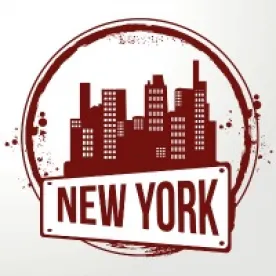The Court of Appeals for the Second Circuit recently revisited the Department of Labor’s four-part test for purposes of determining whether a person qualifies as a “public service volunteer.” In a new decision applying the Second Circuit’s fact-intensive standard, Southern District of New York Judge Jesse M. Furman ruled in favor of the City of New York holding that individuals who performed community service in exchange for eventual dismissal of criminal charges as part of a diversionary program are not entitled to minimum wage as “employees” under the Fair Labor Standards Act. Doyle v. City of New York, 2015 U.S. Dist. LEXIS 26440 (S.D.N.Y. Mar. 4, 2015).
In Doyle, the three plaintiffs collected garbage and cleaned up parks and bridges for the City of New York in exchange for the dismissal of minor criminal charges pending in state court, and were not paid for doing so. In their complaint, plaintiffs alleged that they had no “civic, humanitarian, or charitable reasons” for performing the work and thus their service did not qualify them for the public service volunteer exclusion from FLSA coverage. Because the Court, at the motion to dismiss stage, assumed this allegation to be true, the Court found that plaintiffs were not “volunteers” for purposes of the FLSA.
Judge Furman noted, however, that plaintiffs were not necessarily covered employees, simply because they did not fall within a specific exemption. Plaintiffs argued that they qualified as employees because City agencies referred to people in their position as “employees,” and because their situation was similar to that of participants in New York’s “workfare” program, even though the latter perform their work in order to receive wages and other benefits. Ultimately, the Court gave deference to the DOL’s interpretation that individuals who are required by a court to perform community service for no compensation are not considered employees under the FLSA, and found that, as a matter of economic reality, plaintiffs were not covered employees. Applying the economic reality test at “a higher level of generality” and relying on “our common linguistic intuitions,” the Court found that plaintiffs did not perform community service to earn a living or to receive financial compensation, but to avoid further criminal prosecution. The Court observed that extending the FLSA to cover the plaintiffs would do little to advance the law’s purpose and would possibly undermine the efficacy of New York’s program.
An active Plaintiffs’ bar continues to push for expansive FLSA coverage. Employers, whether private or public sector, for profit or non profit, should analyze their relationship with all vendors and service providers in consultation with counsel to minimize potential liability.




 />i
/>i

